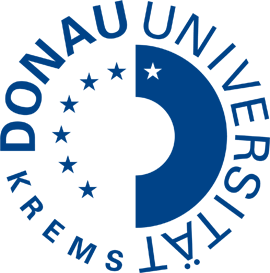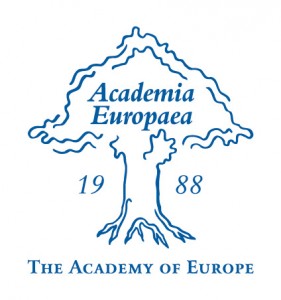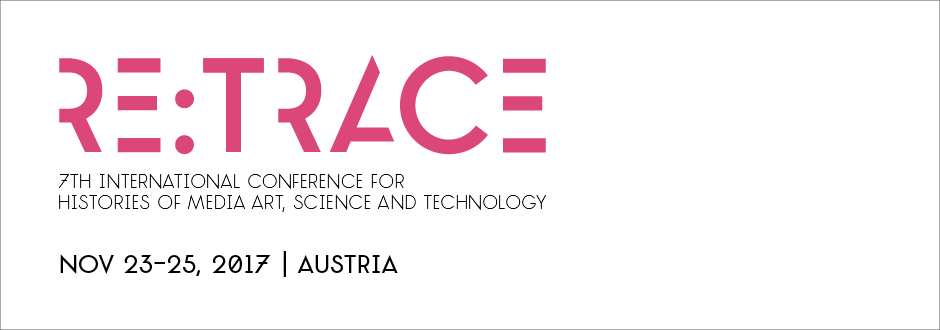This conference is for
the following fields:
art history·
anthropology ·
architecture·
archiving ·
biology / biomedical ·
computer science·
climate research ·
collecting ·
cultural studies ·
cultural heritage ·
curating ·
cyberfeminism ·
cybernetics ·
digital humanities ·
documentation ·
ethnography ·
ecology ·
film studies ·
history of science ·
history of technology ·
image science ·
interaction ·
interculturalism ·
media archaeology ·
media art ·
media studies ·
museum direction ·
museum exhibit creation
nano arts ·
neuroscience ·
performance ·
photography ·
pop culture ·
post-colonial ·
presence research ·
preservation ·
psychology ·
robotics ·
scenography
science writing ·
social media ·
semiotics ·
sociology ·
sound studies ·
supercomputing ·
surveillance ·
teaching·
theatre ·
visual culture
Histories of Media Art will discuss for the first time the history of media art within the interdisciplinary and
intercultural contexts of the histories of art. Numerous individuals and institutions collaborate to produce
the international art history conference series covering art and new media, art and technology,
art-science interaction, and the history of media as pertinent to contemporary art.“
RE:TRACE 2017: Call for Papers [closed]
The 7th International Conference on the Histories of Media Art, Science and Technology titled RE:TRACE focuses on an evaluation of the status of the meta-discipline MediaArtHistories today.
More than a decade after the first conference founded the field now recognized worldwide as a significant historical inquiry at the intersection of art, science, and technology, Media Art Histories is now firmly established as a dynamic area of study guided by changing media and research priorities, drawing a growing community of scholars, artists and artist-researchers.
Immersed in both contemporary and historiographical aspects of the digital world, we explore the most immediate socio-cultural questions of our time: from body futures, information society, and media (r)evolutions, to environmental interference, financial virtualization, and surveillance. And we do so through a fractal lens of inter- and trans-disciplinarity, bridging art history, media studies, neuroscience, psychology, sociology, and beyond. MediaArtHistories is a field whose theory, methods, and objects of study interweave with and overlay other disciplines.
The organizing committee invites researchers of different areas, disciplines and practices to submit individual papers, posters and full panels with new and original research preferably in the following themes:
- MediaArtHistories – historiographies and futures of an ever-emerging field
- Institutional histories of Media Art
- Media Art & Politics (surveillance, climate, visualizations, etc.)
- Collecting media art / Media Art market
- Archiving, preserving and representing Media Art
- Re-Use of cultural heritage data, including education, learning and research
- Methodologies and research tools for MediaArtHistories with a focus on Digital Humanities
- International and local histories and practices of media art
- (Post-)Colonial experiences and non-Western histories of media art, science and technology
- Paradigm shift – Digital vs. Post-Digital Theory
- Alternative histories for Media Art in relation to newly evolving or unexpected fields.
- Models and perspectives of research fields adapted across traditional disciplinary lines.
- New symbolic architecture of digital super companies (Apple, Amazon, Microsoft, FB, Google)
The refereed conference program will include competitively selected, peer-reviewed individual papers, panel presentations and posters, as well as a small number of invited speakers. Presentations will be delivered in a range of formats, from panel discussions to a poster session. We particularly encourage submissions by researchers from international contexts outside of Europe and North America.
KEYNOTE LECTURES and DEBATES with:
+ Martin KEMP (emeritus professor Oxford University, British Academy, UK)
+ Wendy Hui CHUN (Brown University, US)
+ Ryszard KLUSZCZYNSKI (Universität Lodz, PL)
+ Morten SøNDERGAARD (Aalborg University, DAN)
+Sarah KENDERDINE (University of New South Wales, AUS)
Extended Submission Deadline: April 12, 2017
submit to the call – click here
Notification of acceptance will be announced by May 10, 2017.
Individual proposals for papers should consist of a max. 250-word abstract with title.
Proposals for full panels should consist of a max. 500-word abstract outlining the panel and individual topics of confirmed speakers.
Submission language is English.
Submitters should upload a short bio file (Word), no longer than ½ page per person. The short bios will be used on the conference website together with your abstracts.
Initiated by the Media Art Histories Board (Steering Committee):
Prof. Dr. Sean CUBITT (Media and Communications / Goldsmiths University of London / UK); Univ.-Prof. Dr. Oliver GRAU, MAE (Image Science / Danube University / AT); Dr. Linda Dalrymple HENDERSON (Art History / University of Texas at Austin / US); Dr. Andreas BROECKMANN (Leuphana University of Lüneburg, GER); Prof. Dr. Erkki HUHTAMO (University of California Los Angeles / US); Prof. Dr. Douglas KAHN (University of New South Wales, Sydney / AU); Prof. Dr. Machiko KUSAHARA ( Waseda University / Tokyo, Japan); Prof. Dr. Tim LENOIR (UC Davis / US); Prof. Dr. Gunalan NADARAJAN (University of Michigan / US); Prof. Dr. Paul THOMAS (Director / Fine Arts at College of Fine Art / University of New South Wales /AU)
MAH Honorary Board: Martin KEMP, Jasia REICHARDT, Itsuo SAKANE, Peter WEIBEL,
Douglas DAVIS †, Rudolf ARNHEIM †
Conference dates: November 23–25 , 2017, Krems (World Cultural Heritage) & Austrian Academy of Sciences (ÖAW), hosted by DANUBE UNIVERSITY and ÖAW
Co-Chairs RE:TRACE: Oliver GRAU & Inge HINTERWALDNER
Conference Advisory Board RE:TRACE:
Carl AIGNER (Landesmuseum St. Pölten, AT); Jose Ramon ALCALA (University of Castilla La Mancha, ES); Giselle BEIGUELMAN (University of São Paulo, BR); Beatriz ESCRIBANO BELMAR (University of Castilla La Mancha, ES); Andreas BROECKMANN (Leuphana University Lüneburg, DE); Andres BURBANO (Universidad de los Andes, CO); Valentino CATRICALA (University Roma Tre / Media Art Festival, IT); Sebastian EGENHOFER (University of Vienna, AT); Ksenia FEDOROVA (RU/UC Davis, US); Sabine FLACH (University of Graz, AT); Katharina GSÖLLPOINTNER (University of Applied Arts, Vienna, AT); Erkki HUHTAMO (University of California Los Angeles, US); Ryszard KLUSZCZYNSKI (University of Lodz, PL); Katja KWASTEK (Vrije Universiteit Amsterdam, NL); Daniel Cardoso LLACH (Carnegie Mellon University, US); Sjoukje van der MEULEN (Utrecht University, NL); Gunalan NADARAJAN (University of Michigan, US); Gerald NESTLER (Vienna, A); Ana PERAICA (Split, HR); Christopher SALTER (Concordia University, CA); Yukiko SHIKATA (Tokio, JP; Christa SOMMERER (University of Art and Design, Linz, AT); Morten SøNDERGAARD (Aalborg University, DK); Axel STOCKBURGER (Academy of Fine Arts, Vienna, AT); Gerfried STOCKER (Ars Electronica, Linz, AT); Eveline WANDL-VOGT (ÖAW, Vienna, AT).
Venues:
Danube University / Located 70km from Vienna in the UNESCO World Heritage Wachau region, Danube University is the only public university in Europe specializing in advanced continuing education by offering low-residency degree programs for working professionals and life-long learners. Located at both a modern university campus and in the Göttweig Monastery, the Dept. for Image Science is an internationally unique institution for research and innovative teaching with an international faculty, at this point 120 scholars from various nations and disciplines. The innovative approach of the Department for Image Science with the close connection to practice has developed the Archive of Digital Art and founded in 2006 the low-residency MediaArtHistories-Advanced, MA answering the need for international, post-graduate studies.
Austrian Academy of Sciences, Vienna / The vibrant capital of the Republic of Austria in Central Europe meeting international travel standards with safe and exciting surroundings that embrace culture both old and new. Planning for Vienna is being organized with partner institutions and colleagues. Fast and frequent public transportation between Vienna and Krems allows for a blending of two locations into one venue, distributing separate days in each venue.
Links:
Re:Trace call for papers
MediaArtHistories-Advanced, MA
Archive of Digital Art
CfP RE:TRACE 2017 on Academia.edu
Partners:
 |
 |
 |
 |
  |
|||
 |
 |
||

